Short Course Registration Info
Short course registration includes a complete set of course notes. Payment can be made on line with MasterCard, Visa,
Discover, or American Express.
|
Registration Fee for Rheology of Polymer Composites and Nanocomposites or
Structure and Rheology of Foams and Emulsions
|
Through 9/7/2018 |
After 9/7/2018 |
| Member* |
$700 |
$800 |
| Non-Member** (includes membership for 2019) |
$800 |
$900 |
| Student Member* |
$400 |
$470 |
| Student Non-Member** (includes membership for 2019) |
$440 |
$510 |
* Member rates are available only to registrants who are members in good standing as of June 30, 2018
or who are registered to attend the 90th Annual Meeting.
** Non-members who are registered to attend the 90th Annual Meeting may register for the short course at the member rates.
Cancellations for the short course received by electronic mail (c/o The Local Arrangements Chair, Jason Maxey)
by September 7, 2018
will be refunded minus a $50 administrative charge. No refunds will be granted after that date. Typically each class is limited to 40 students.
Rheology of Polymer Composites and Nanocomposites
Ramanan Krishnamoorti (University of Houston), Megan Robertson (University of Houston) and Tirtha Chatterjee (The Dow Chemical Company)
Course Description
Polymer nanocomposites and filled polymer systems with sub-micron sized fillers dominate the new generation of material systems including those being
developed for a wide-range of applications including polymer based additive-manufacturing. This short course is designed to highlight the cutting-edge
advances in polymer nanocomposites and filled polymer systems and understand the role of processing on controlling final properties of such material
systems. The course will focus on systematically exploring topics in:
-
Fundamentals of polymer rheology and connection to processing. Specifically connecting the macroscopic structural and mechanical consequences of
processing to the inherent melt-state rheological properties of polymers.
-
Fundamentals of polymer nanocomposites and connection of properties to processing. The dispersion of spherical or nearly isotropic nanoparticles
such as carbon black and silica to dispersion and orientation of one-dimensional rod-like and two-dimensional disk-like nanoparticles control the
properties of these multi-component materials. The dispersion and orientation are intimately connected to the underlying processing in addition
to chemical and thermodynamic underpinnings.
-
Melt and Solution Rheology of Polymer Nanocomposites. This course will examine the connection between particle size and dimensionality, dispersion
state and fractal-like macroscale structure and / or orientation on the key rheological characteristics. The specific topics to be addressed in
more detail include
-
Linear Viscoelasticity – Connection to dispersion, structure and Interface; Orientational effects on linear shear rheology
-
Creep Rheology – Aging and evolution
-
Non-linear Shear Rheology – Connection to processing, properties and impact on orientation
-
Thixotropy and structural evolution
-
Extensional Rheology – Relation to Processing
-
Rheological properties of cross-linked filled elastomers and relation to structure of composites. Filled elastomers, thermoplastic and cross-linked,
demonstrate a range of interesting time dependent and deformation history based characteristics that are inherently connected to the rheological
properties and their structure.
Instructors
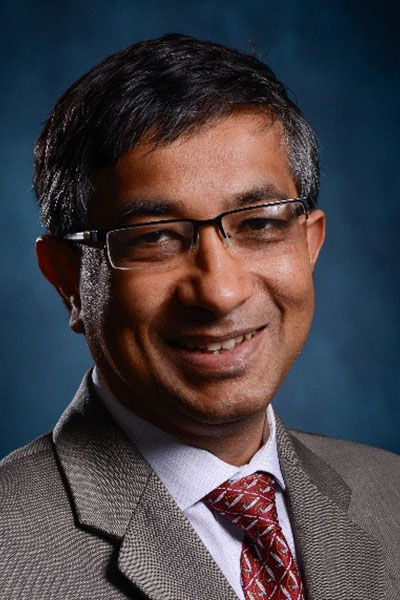
Ramanan Krishnamoorti
Professor, University of Houston
Dr. Ramanan Krishnamoorti
is a Professor of Chemical and Biomolecular Engineering at the University of Houston with courtesy appointments
in the Department of Chemistry and Department of Petroleum Engineering at the University of Houston. Ramanan received his PhD from
Princeton University. His research interests are in the understanding of structure – processing – property relations for multicomponent
polymer systems, with a focus on understanding the role of molecular structure, thermodynamics and dynamics on their phase behavior and
processing. He is a fellow of the American Physical Society and the Neutron Scattering Society of America.
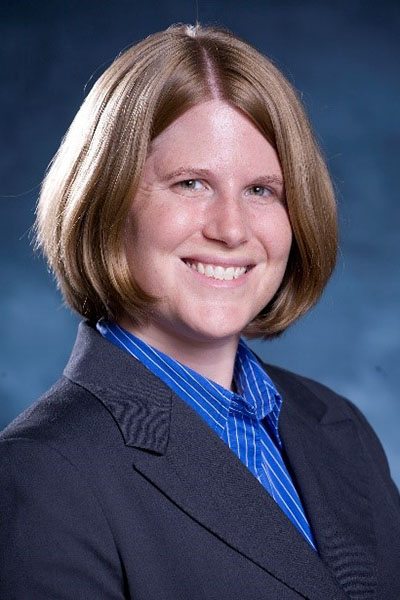
Megan L. Robertson
Associate Professor, University of Houston
Dr. Megan L. Robertson
is an Associate Professor in the Department of Chemical and Biomolecular Engineering at the University of Houston. Dr. Robertson received her Ph.D. in
Chemical Engineering from the University of California, Berkeley, advised by Nitash P. Balsara. Dr. Robertson was a Senior Scientist at Rohm and Haas
(now Dow Chemical) in Spring House, Pennsylvania and a Postdoctoral Research Associate in the Department of Chemistry at the University of Minnesota,
working with Marc A. Hillmyer. Dr. Robertson is the recipient of the Sparks-Thomas Award (ACS Rubber Division, 2018), NSF CAREER Award (2014), and
University of Houston Undergraduate Research Mentor Award (2017), and is recognized as an ACS PMSE Young Investigator (2017). The Robertson Research
Group works in diverse areas including sustainable polymers derived from renewable resources, biodegradable polymers, advanced resins for polymer
composites, structure and dynamics of block copolymer micelles, antifouling polymers and polymer brushes, and thermodynamics of polyolefin and polydiene blends.
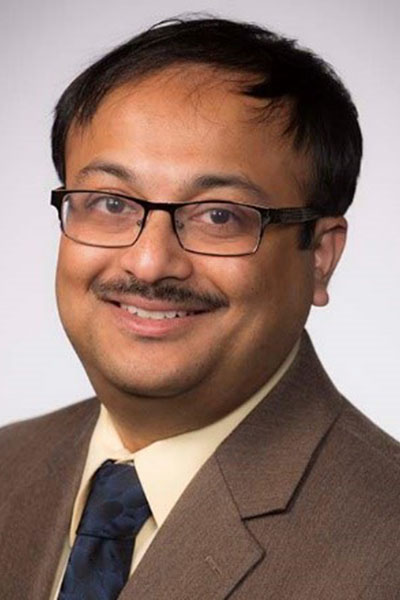
Tirtha Chatterjee
Research Scientist, The Dow Chemical Company
Dr. Tirtha Chatterjee
is a Research Scientist at Dow Water and Process Solutions (DWPS), a business unit of The Dow Chemical Company. He joined Dow in 2010 after earning his PhD degree
in Chemical Engineering in 2008 from the University of Houston followed by a post-doctoral fellowship at the Materials Research Laboratory at the University of
California at Santa Barbara. His research interests include polymer nanocomposites, associative polymers and their interaction with colloidal particles,
biopolymers solution and gel properties among others. Currently, his research focus is in developing novel polymeric membranes that are stable in extreme pH.
Tirtha has two granted US patents, two book chapters and several peer-reviewed journal publications in the field of structure and rheology of polymer nanocomposites.
Structure and Rheology of Foams and Emulsions
Sibani Lisa Biswal (Rice University) and Vivek Sharma (University of Illinois at Chicago)
Course Description
This two-day course will provide a comprehensive introduction to the structure and rheology of foams and emulsions. In addition to introductory lectures
on rheological methods, flows, and properties used for characterizing foams and emulsions, this short course incorporates introductory lectures on the
phase behavior of surfactants, methods for characterizing dynamic surface tension and interfacial rheology, and flows of emulsions and foams through
porous media. Foam and emulsion stability, including techniques that focus on thin film dynamics will be discussed in addition to discussion of additives
used for destabilizing foams and emulsions. Techniques used for characterization of structure of foams and emulsions including microscopy, light scattering,
diffusion wave spectroscopy, conductivity, among others will be discussed. Special focus will be placed on the discussion of how fundamental concepts can
be applied to the design and engineering of foams and emulsions for industrial applications, such as for food science, pharmaceuticals and drug delivery
formulations, cosmetics, petroleum, coatings, and subsurface engineering.
- Introductions to Surfactants and Phase Behavior
- Physics of Foams and Emulsions; Emulsification
- Foamability, Tensiometry, Adsorption Kinetics
- Bulk Rheology of Foams
- Wettability, Imbibition, Foams in Porous Media
- Foam Drainage: Macroscopic and Single Lamella
- Destabilization of Emulsions and Antifoaming
- Particle-laden Foams and Emulsions>
- Science and Engineering of Foams and Emulsions Formulations
- Interfacial Rheology
Instructors
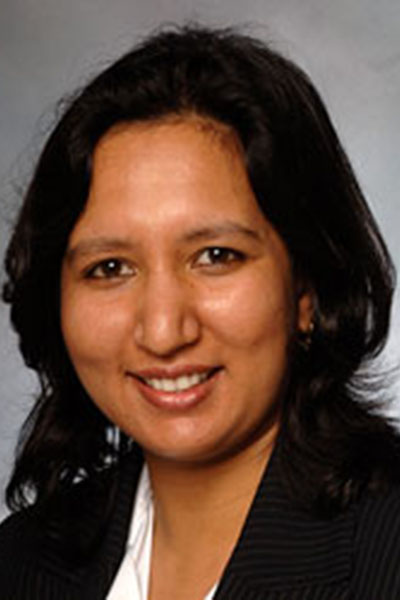
Sibani Lisa Biswal
Associate Professor, Rice University
Dr. Sibani Lisa Biswal
is an Associate Professor in the Department of Chemical and Biomolecular Engineering at Rice University in Houston, TX and leads the Soft Matter Engineering
Laboratory. Dr. Biswal’s research focuses on the fundamental understanding and application of soft matter systems. Research examples include directed assembly
of colloidal systems, multiphase flows in microfluidic systems, and the understanding and manipulation of foams and emulsions related to enhanced oil recovery
processes. She has a B.S in chemical engineering from Caltech (1999) and a Ph.D. in chemical engineering from Stanford University (2004). She is the recipient
of an ONR Young Investigator Award (2008), a National Science Foundation CAREER award (2009), the Southwest Texas Section AICHE Best Fundamental Paper Award
(2014), and the Professional Progress Award for the Rice ChBE Alumni (2017).
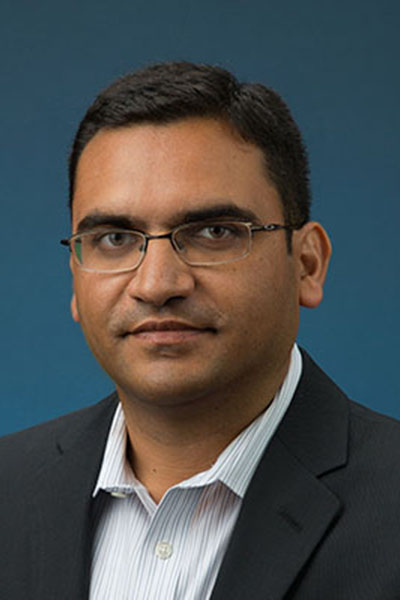
Vivek Sharma
Assistant Professor, University of Illinois at Chicago
Dr. Vivek Sharma
is an Assistant Professor of Chemical Engineering at the University of Illinois at Chicago. Before joining UIC in November 2012, he worked as a post-doctoral
research associate in Mechanical Engineering at Massachusetts Institute of Technology. He received his Ph. D. (Polymers/MSE, 2008) and M. S. (Chemical
Engineering, 2006) from Georgia Tech., an M. S. (Polymer Science, 2003) from the University of Akron, and a bachelor's degree from IIT Delhi. Dr. Sharma's
research interests broadly lie in optics, dynamics, elasticity, and self-assembly (ODES) of complex fluids and soft materials. At UIC, Dr. Sharma's Soft
Matter ODES-lab combines experiments and theory to pursue the understanding of, and control over interfacial and nonlinear flows, focused on the interplay
of (a) viscoelasticity and capillarity for printing applications and extensional rheometry, and (b) interfacial thermodynamics and hydrodynamics in fizzics
(the science of bubbles, drops, thin films, jets, fibers, emulsions and foams). Dr. Sharma was selected as the Distinguished Young Rheologist by TA Instruments
in 2015, and won the 2017 College of Engineering Teaching Award at UIC.